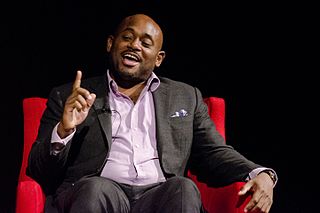A Quote by Richard Dawkins
A delusion that encourages belief where there is no evidence is asking for trouble. Disagreements between incompatible beliefs cannot be settled by reasoned argument because reasoned argument is drummed out of those trained in religion from the cradle. Instead, disagreements are settled by other means which, in extreme cases, inevitably become violent. Scientists disagree among themselves but they never fight over their disagreements. They argue about evidence or go out and seek new evidence. Much the same is true of philosophers, historians and literary critics.
Quote Topics
About
Among
Argue
Argument
Asking
Because
Become
Belief
Beliefs
Between
Cannot
Cases
Cradle
Critics
Delusion
Disagree
Disagreements
Encourages
Evidence
Extreme
Fight
Go
Historians
Incompatible
Inevitably
Instead
Literary
Means
Much
Never
New
Other
Out
Over
Religion
Same
Scientists
Seek
Settled
Themselves
Those
Trained
Trouble
True
Violent
Which
Related Quotes
Religion is unusual among divisive labels in being spectacularly unnecessary. If religious beliefs had any evidence going for them, we might have to respect them in spite of their concomitant unpleasantness. But there is no such evidence. To label people as death-deserving enemies because of disagreements about real world politics is bad enough. To do the same for disagreements about a delusional world inhabited by archangels, demons and imaginary friends is ludicrously tragic.
I think Martin Luther correctly distinguished between what he called the magisterial and ministerial uses of reason. The magisterial use of reason occurs when reason stands over and above the gospel like a magistrate and judges it on the basis of argument and evidence. The ministerial use of reason occurs when reason submits to and serves the gospel…. Should a conflict arise between the witness of the Holy Spirit to the fundamental truth of the Christian faith and beliefs based on argument and evidence, then it is the former which must take precedence over the latter.
Even if the absence of evidence for a given god were not evidence of its absence, it would still be evidence that the belief in that god is unreasonable. That's the only proposition that any atheist of any kind has to demonstrate in order to win the argument. Because anything beyond that... is just having fun.
People will tell us that without the consolations of religion they would be intolerably unhappy. So far as this is true, it is a coward's argument. Nobody but a coward would consciously choose to live in a fool's paradise. When a man suspects his wife of infidelity, he is not thought the better of for shutting his eyes to the evidence. And I cannot see why ignoring evidence should be contemptible in one case and admirable in the other.
































